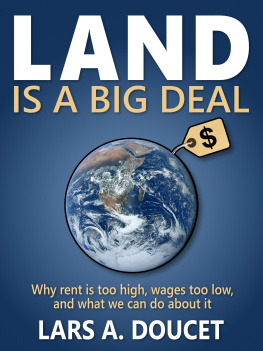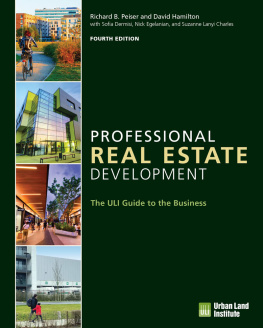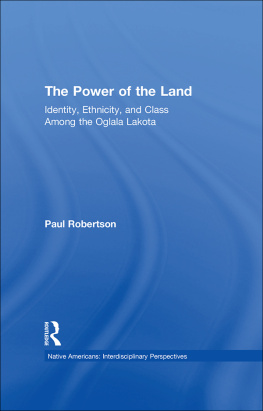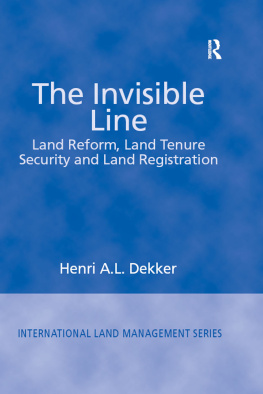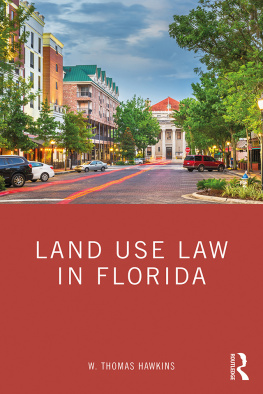Pre-Publication Praise for LAND IS A BIG DEAL
Inspiring a renewal of interest in Georgist ideas whose full ramifications are yet to be determined.
Scott Alexander, author of Astral Codex Ten
A really excellent overview of land wealth in America
Noah Smith, Economist
Lars's work is intellectually fascinating and among the clearest and most compelling writing in support of land value taxes that I've seen.
Vitalik Buterin, founder of Ethereum
Why land matters more today than ever and why economists, urbanists & everyone else need to take Henry George seriously.
Richard Florida, co-founder of Bloomberg CityLab
An absolutely wonderful summary of the economics of Henry George and land value taxes. Comprehensive but accessible, and above all fun!
Rethinking Economics
Take the Georgist pill and read this.
Arpit Gupta, author of Arpitrage newsletter
Have you seen the cat? Whether or not Doucet converts you to Georgism, youll come away with a new appreciation for how every economic system is built on the same resource: land."
SlimeMoldTimeMold.com
Lars A. Doucet
LAND IS A BIG DEAL
Why rent is too high, wages too low, and what we can do about it
First Edition

LAND IS A BIG DEAL
Copyright 2022 by Lars A. Doucet
All rights reserved. No part of this book may be reproduced or transmitted in any form or by any means without written permission from the author.
If you purchased this book without a title cover, you should be aware that this book is stolen property. It was reported as unsold and destroyed to the publisher and neither the author nor the publisher has received any payment for this stripped book.
Shack Simple Press
601 Yorkshire Drive
College Station, TX 77845
https://www.shacksimplepress.com/
Land is a Big Deal / Lars A. Doucet, 1st ed.
Paperback ISBN 979-8-9853225-2-1
eBook ISBN 979-8-9853225-3-8
Some of this material was originally published on astralcodexten.substack.com and gameofrent.com
Printed in USA
Dedication
For Emily
Table of Contents
Foreword(s)
This book began its life as a series of articles that struck a nerve online and became more popular than I could ever have imagined. To explain how we got from there to here, I asked two friends to lend some words of introduction for how this all came about, as well as the broader economic context in which this book was written.
Lars A. Doucet
Who even writes forewords for books anymore? The only place I ever see forewords is in old texts, by some historian trying to explain the context in which the book was written. So in case anyone is reading this book a hundred or a thousand years in the future, here's the context.
In the 2020s, when this book was written, median USA rent had gone up 20% (in real terms) over twenty years. Houses were skyrocketing in price so consistently that large investment groups were snapping up much of the available stock. Leading newspapers (an archaic form of media sort of like a blog, but more pretentious) declared the end of the American Dream of homeownership. An elderly man with period-atypical facial hair achieved national acclaim for founding a political party called The Rent Is Too Damn High. Urban dwellers organized into factions with names like NIMBYs and YIMBYs to fight over whether the government should allow new houses to be built.
I was a blogger during this period, and hit on the idea of running a book review contest. After getting over a hundred entries, I decided to let readers vote on the best. The overwhelming winner was a Norwegian-Texan game designer I'd never heard of, who wrote a review of Henry George's Progress And Poverty, which explained the reasons that housing was so expensive and set out a program for solving the problem. I gave him the prize of five thousand dollars (an archaic currency sort of like Bitcoin, but less useful for buying drugs) and expected never to hear about it again.
I was wrong. There's an old optical illusion where, if you stare at it long enough, the image of a cat suddenly jumps out, so obvious that you can't understand how you missed it before. The Georgists talk about their own movement in terms of seeing the catrealizing the degree to which land affects the economy is a sudden perspective shift, surprising and irreversible. Lars' entry in my book review contest caused thousands of people to see the cat at once. It ended up getting 114,000 views, being shared hundreds times on Twitter (an archaic social media site sort of like voluntarily subjecting yourself to painful electric shocks, but more addictive), and inspiring a renewal of interest in Georgist ideas whose full ramifications are yet to be determined. One of those ramifications is this book.
The really frustrating thing about Georgism is the typical response from economists (an archaic profession kind of like an oracle, but less accurate). They say sure, it is a brilliant idea, it would solve a lot of problemsbut it is a nonstarter for lack of political will to carry it out, so it is doomed. They make a good point. But you can solve lack of political will by building political willthe job Lars has set for himself here.
If you're reading this book in the distant future, I hope your society has found that this movement is not so hopeless after all. And if you're reading it in the present, I hope it inspires you to become a part of that change.
Scott Alexander, author of Astral Codex Ten
It would only be a slight exaggeration to say that humanitys history is defined by a struggle over land. We find ourselves populating a 2-dimensional spherical surface with a fixed amount of territory. We did not create this territory (or at least, not most of it); thus, it represents the ultimate zero-sum game.
Land has value for many reasons. Some of it can be farmed. Some of it has useful minerals underneath it. Some pieces are close to valuable natural features like harbors. Weve been fighting over these resources since the beginning of time. Individuals, tribes, nation-states and armies would try to kick each other off bits of land and claim ownership for themselves. Some of this is still going on.
Property rights help formalize and legitimize this forceful conquest. When you sell a piece of land to someone, youre participating in a chain of peaceful land sales that began at some point in the past with a violent seizure. Unlike property rights over a house or a corporationthings made via human effort and ingenuityproperty rights over land has always carried a slight taint of violence. This is one reason why cries for economic justice often come in the form of calls to redistribute farmland from large landlords to small farmers, or to return land to its previous owners.
But this is not the only reason why land ownership has always been suspicious. Because in addition to natural resources, theres another key reason land has valuenamely, its proximity to other land. If you build a house out in the middle of nowhere, it wont be worth a lot; if you build it right next to Central Park, itll be worth millions of dollars, simply because it is situated close to a big cluster of valuable human activity.
Most of this value, too, is not created by the person who owns the land. People who were lucky enough to hold the title deeds to parcels of land in the middle of San Francisco in 1990 have seen their property values shoot up as successive booms in the information technology industry have turned their city into a high-tech business hub. Through no actions of their own, they have become rich.
This enrichment of landowners sucks value away from the workers and the businesses that created the economic value. San Francisco doesnt just have high land pricesit has astronomical rents, which appropriate value from workers and companies and hand it to lucky landlords. These unnecessary added costs make our economy less efficient and less productive. In recent years, some residents of these overpriced cities have begun to rebel against the zoning regimes and other regulations that restrict housing supply in order to bring rents down.
Next page
